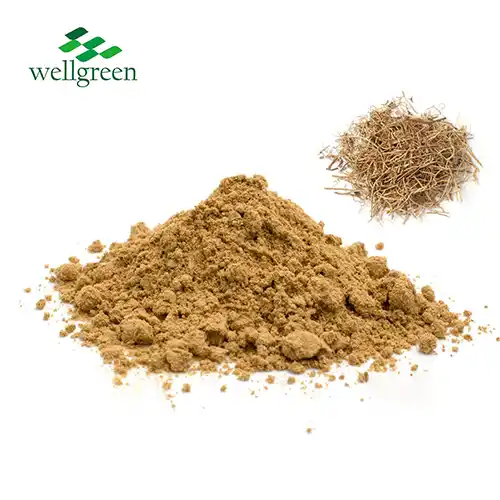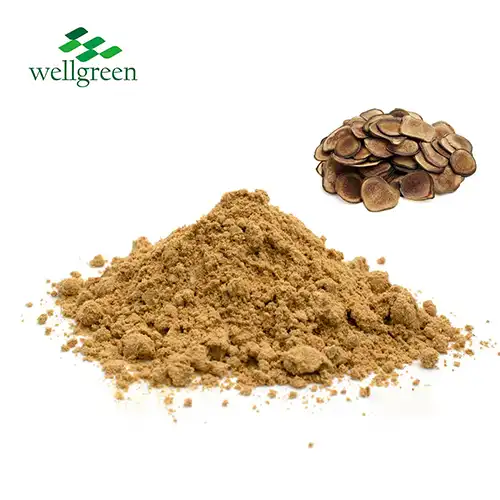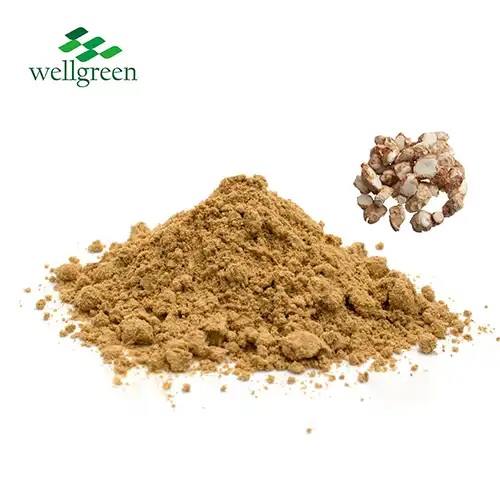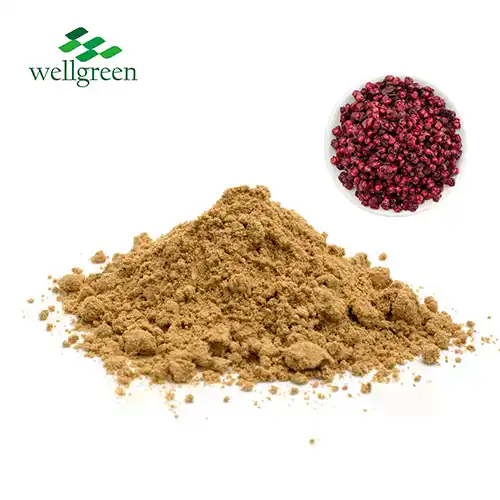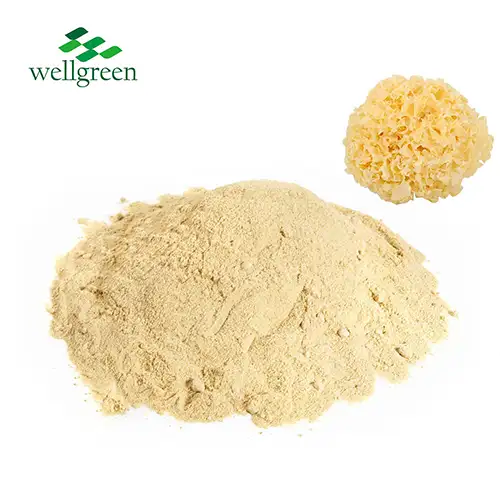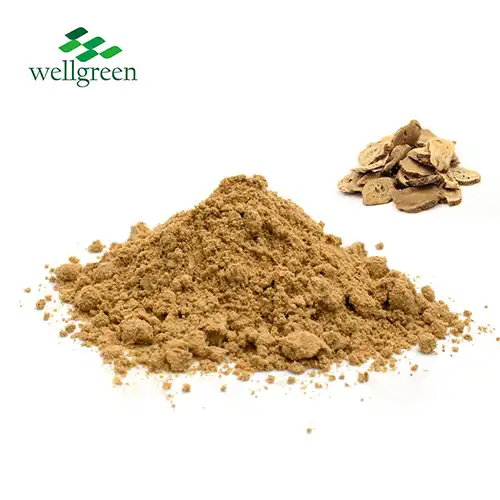How Exactly do Elderberry Extract Flavonoids Like Quercetin Boost Immune Cells?
2025-09-16 13:38:13
Elderberry extract, particularly its flavonoid components like quercetin, has garnered significant attention for its immune-boosting properties. These powerful compounds work synergistically to enhance immune function through multiple mechanisms. Quercetin, a key flavonoid in elderberry extract, interacts with various immune pathways, modulating the activity of immune cells and influencing cytokine production. It acts as an antioxidant, reducing oxidative stress and inflammation, while also exhibiting antiviral properties. By enhancing the proliferation and activity of white blood cells, such as lymphocytes and natural killer cells, elderberry extract flavonoids strengthen the body's defense against pathogens. Additionally, these compounds regulate the production of cytokines, crucial signaling molecules in the immune response, helping to maintain a balanced and effective immune system.
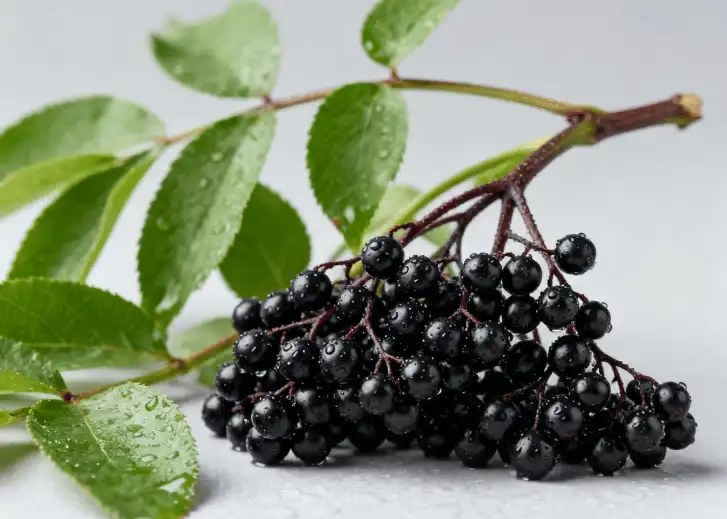
Interaction of Quercetin with Immune Pathways
Modulation of NF-κB Signaling
Quercetin, a prominent flavonoid in Sambucus elderberry extract, plays a crucial role in modulating the NF-κB signaling pathway. This pathway is integral to the immune response, controlling the expression of genes involved in inflammation and cell survival. By inhibiting the activation of NF-κB, quercetin helps regulate the inflammatory response, preventing excessive inflammation that can be detrimental to overall health. This modulation contributes to a more balanced immune reaction, allowing the body to respond effectively to threats without causing undue stress on the system.
Activation of MAPK Cascades
Another significant interaction of quercetin involves the activation of Mitogen-Activated Protein Kinase (MAPK) cascades. These signaling pathways are essential for various cellular processes, including immune cell differentiation and activation. Quercetin's ability to influence MAPK cascades enhances the responsiveness of immune cells, particularly T-cells and macrophages. This heightened state of readiness allows the immune system to mount a more rapid and effective response against pathogens, contributing to the overall immune-boosting effects of elderberry extract.
Influence on JAK-STAT Pathway
The Janus Kinase-Signal Transducer and Activator of Transcription (JAK-STAT) pathway is another critical component of the immune system affected by quercetin. This pathway is involved in the signaling of various cytokines and growth factors, playing a vital role in immune cell development and function. Quercetin's interaction with the JAK-STAT pathway helps regulate the production and activity of immune cells, ensuring a balanced and effective immune response. By fine-tuning this pathway, quercetin contributes to the overall enhancement of immune function provided by sambucus extract.
Effect on White Blood Cells and Cytokine Production
Enhancement of Lymphocyte Proliferation
Elderberry extract flavonoids, particularly quercetin, have a profound effect on lymphocyte proliferation. Lymphocytes, including T-cells and B-cells, are crucial components of the adaptive immune system. Studies have shown that quercetin can stimulate the proliferation of these cells, increasing their numbers and enhancing the body's capacity to respond to specific pathogens. This proliferation is essential for mounting an effective immune response, as it ensures an adequate supply of specialized immune cells ready to combat invading microorganisms.
Activation of Natural Killer Cells
Natural Killer (NK) cells play a vital role in the innate immune system, providing rapid responses against virus-infected cells and tumor cells. Elderberry extract flavonoids have been found to enhance the activity of NK cells, boosting their cytotoxic capabilities. This activation allows NK cells to more effectively identify and eliminate compromised cells, providing a crucial first line of defense against viral infections and potentially malignant cells. The enhanced NK cell activity contributes significantly to the overall immune-boosting effects of sambucus elderberry extract.
Regulation of Cytokine Production
Cytokines are essential signaling molecules in the immune system, coordinating various aspects of the immune response. Elderberry extract flavonoids, including quercetin, play a crucial role in regulating cytokine production. They can modulate the release of pro-inflammatory cytokines such as TNF-α and IL-6, helping to control excessive inflammation. Simultaneously, these compounds can enhance the production of anti-inflammatory cytokines like IL-10, promoting a balanced immune response. This regulatory effect on cytokine production is key to maintaining a healthy immune system, capable of responding effectively to threats without causing undue inflammation or tissue damage.
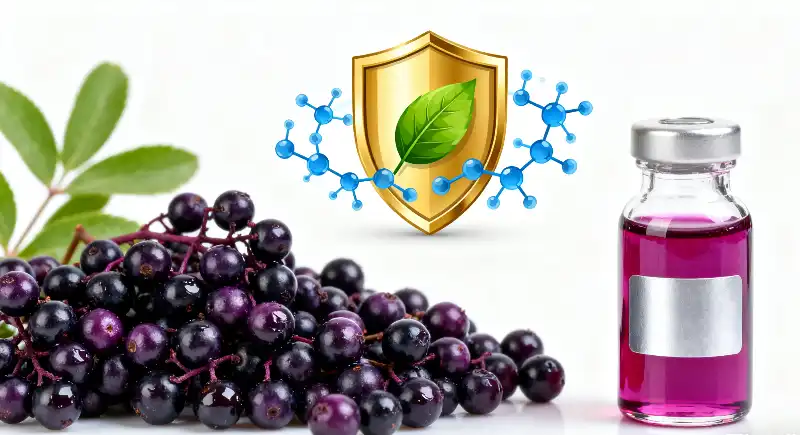
Synergistic Benefits of Flavonoid Compounds
Complementary Antioxidant Activities
The flavonoids present in elderberry extract work synergistically to provide potent antioxidant protection. While quercetin is a powerful antioxidant on its own, its effects are amplified when combined with other flavonoids found in sambucus extract, such as anthocyanins and rutin. These compounds work together to neutralize free radicals and reduce oxidative stress more effectively than any single component could achieve alone. This enhanced antioxidant activity not only supports immune function but also contributes to overall cellular health, protecting against oxidative damage that can compromise immune cell effectiveness.
Enhanced Anti-Inflammatory Effects
The combination of flavonoids in sambucus extract demonstrates enhanced anti-inflammatory properties compared to individual compounds. While quercetin is known for its anti-inflammatory effects, other flavonoids in the extract complement and enhance these properties. This synergistic action results in a more potent reduction of inflammation throughout the body. By modulating various inflammatory pathways and mediators, the flavonoid complex in sambucus extract helps maintain a balanced inflammatory response, crucial for optimal immune function and overall health.
Improved Bioavailability and Absorption
The diverse array of flavonoids in elderberry extract contributes to improved bioavailability and absorption of these beneficial compounds. Different flavonoids can enhance the absorption of others, leading to higher concentrations of active compounds in the bloodstream. For instance, some flavonoids may inhibit enzymes that would otherwise break down quercetin, allowing it to remain active in the body for longer periods. This synergistic effect ensures that the immune-boosting properties of elderberry extract are more effectively delivered and utilized by the body, maximizing its potential benefits for immune health.
Conclusion
The immune-boosting properties of elderberry extract flavonoids, particularly quercetin, are the result of complex interactions with various immune pathways and cellular processes. Through modulation of signaling pathways, enhancement of white blood cell function, regulation of cytokine production, and synergistic antioxidant and anti-inflammatory effects, these compounds significantly bolster the immune system. The multifaceted approach of elderberry extract in supporting immune health underscores its potential as a valuable supplement for maintaining overall wellness and resilience against pathogens.
Contact Us
To learn more about our high-quality elderberry extract and other plant-based supplements, contact Xi'an Wellgreen, a trusted elderberry extract supplier, at wgt@allwellcn.com. Enhance your immune health with our premium, scientifically-backed products today!
References
1. Zakay-Rones, Z., et al. (2004). Randomized study of the efficacy and safety of oral elderberry extract in the treatment of influenza A and B virus infections. Journal of International Medical Research, 32(2), 132-140.
2. Hawkins, J., et al. (2019). Black elderberry (Sambucus nigra) supplementation effectively treats upper respiratory symptoms: A meta-analysis of randomized, controlled clinical trials. Complementary Therapies in Medicine, 42, 361-365.
3. Torabian, G., et al. (2019). Anti-influenza activity of elderberry (Sambucus nigra). Journal of Functional Foods, 54, 353-360.
4. Kinoshita, E., et al. (2012). Anti-influenza virus effects of elderberry juice and its fractions. Bioscience, Biotechnology, and Biochemistry, 76(9), 1633-1638.
5. Barak, V., et al. (2001). The effect of Sambucol, a black elderberry-based, natural product, on the production of human cytokines: I. Inflammatory cytokines. European Cytokine Network, 12(2), 290-296.
6. Młynarczyk, K., et al. (2018). Bioactive properties of Sambucus nigra L. as a functional ingredient for food and pharmaceutical industry. Journal of Functional Foods, 40, 377-390.

